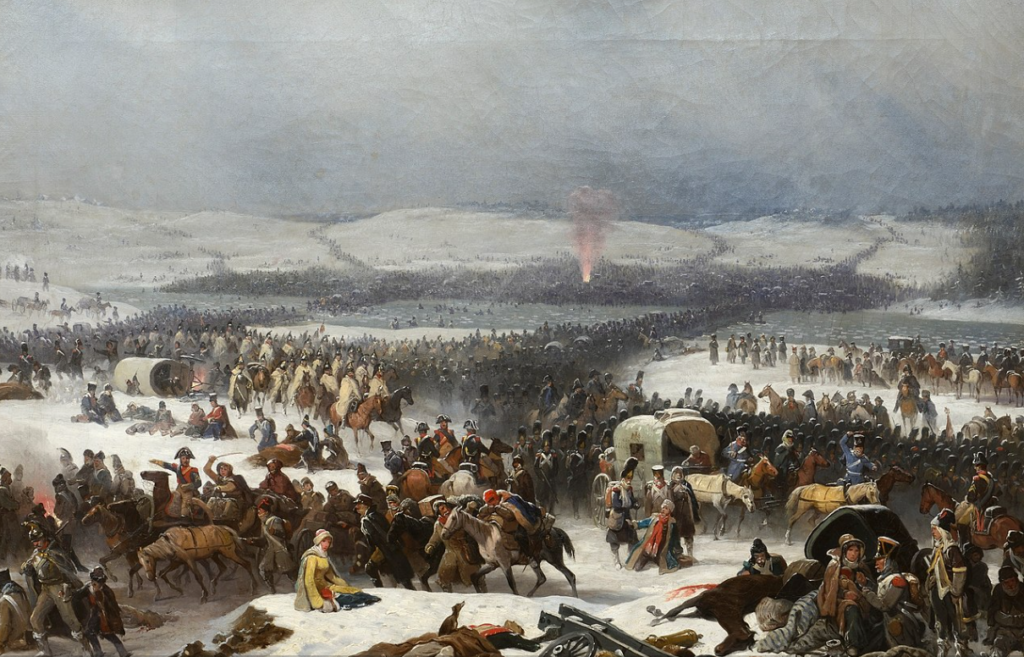
The retreat from Russia in 1812, especially the crossing of the Berezina River, is one of the most dramatic moments in Napoleon Bonaparte’s military career, illustrating both the logistical difficulties and the desperation of his retreating army.
After the catastrophic Russian winter and the failed invasion of Russia, Napoleon’s army was in disarray. The French had advanced deep into Russia, but after the Battle of Borodino and the burning of Moscow, they were forced to retreat, with Russian forces continually harassing them. By the time they reached the Berezina River (which runs through modern-day Belarus), the French army was severely weakened, consisting mostly of exhausted, starving, and demoralized soldiers.
Napoleon attempted to make a stand at the Berezina River because it was one of the last major rivers between him and relative safety in Poland. The Russian forces, commanded by Prince Kutuzov and others, were in hot pursuit, determined to destroy the French army. The crossing of the Berezina itself became a chaotic and bloody affair.
Between November 26 and 29, 1812, Napoleon’s army was forced to cross the Berezina while being constantly attacked by Russian forces. The French managed to construct two pontoon bridges to cross the river, but the situation was disastrous. The bridges were under constant fire from Russian artillery, and many soldiers were either killed or drowned while trying to cross. The retreating French army also faced difficult conditions: harsh weather, starvation, and a lack of supplies.
Despite the chaos, Napoleon’s forces did manage to escape across the river, but at a heavy cost. Estimates suggest that around 30,000 men were lost, either through death, capture, or desertion. Even though the retreat across the Berezina allowed Napoleon’s army to survive in a weakened state, it marked the end of his invasion of Russia. Only a small fraction of the Grande Armée made it back to France. Napoleon’s reputation, as well as the viability of his empire, were severely damaged after this retreat.
The battle at the Berezina is often cited as an example of the collapse of the “invincible” Napoleonic army and the turning point in Napoleon’s fortunes, leading to his eventual downfall.